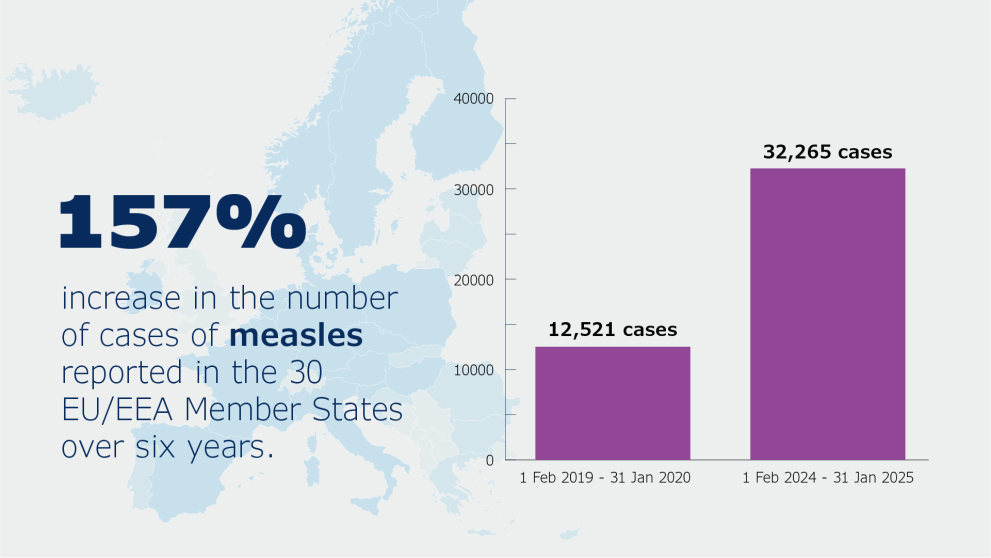Measles
Measles is a highly contagious viral infection that can lead to severe complications and even death in rare cases. Children under 5 years of age are particularly at risk. Measles vaccination has had the biggest impact on reducing child mortality and illness over the past 50 years. The European Medicines Agency (EMA) evaluates, recommends and monitors vaccines against diseases such as measles in the European Union (EU).
HumanData on medicinesMedicines



